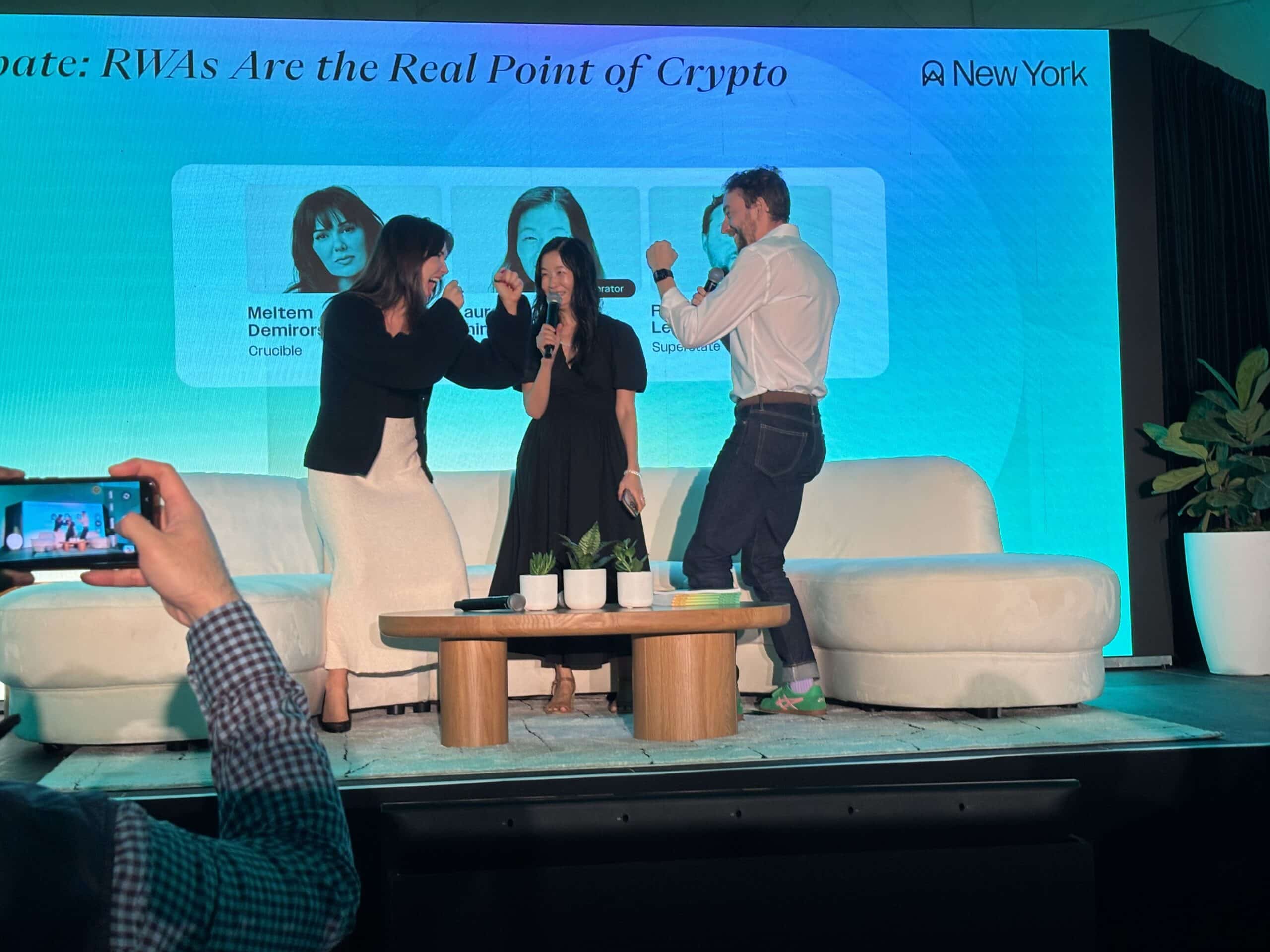Meltem Demirors, the founder and general partner of early stage crypto fund Crucible Ventures, and Robert Leshner, the CEO and founder of blockchain-based asset management firm Superstate, went toe-to-toe on the merits of tokenizing real world assets at the Real World Assets Summit in New York City on Tuesday. The debate was moderated by Laura Shin, the host of the Unchained podcast.
Leshner, who is also a co-host of the Chopping Block podcast, which is published by Unchained, opened the debate by arguing that tokenization can help make the trillions of dollars in real world assets more secure and useful.
“We’ve got $500 trillion in assets that can migrate over time from bad ledgers to good ledgers, where the assets can do more and be better,” Leshner said.
Demirors came out swinging, however, asserting that many assets that ultimately get tokenized, such as real estate, are not always such great investments to begin with, and that while tokenization may represent financial innovation, it doesn’t represent crypto innovation.
“I think tokenization is a great way to put lipstick on a pig,” Demirors said. “You dress up something that is not pretty, not liquid, doesn’t trade anything, is not compatible with crypto rails, and you make it crypto compatible. That is a great use of blockchain technology. It is not crypto.”
But Demirors did not stop there, proceeding to use even more colorful language to make her point. “Taking a pile of dog shit, putting a wrapper around it, and putting it on chain does not make it a better asset,” she said, eliciting laughs from the audience of tradfi and DeFi professionals.
In response, Leshner argued that the advantages cryptocurrencies have because they are decentralized also accrue to tokenized assets.
“[Think about] all the properties that make tokens possible—they’re global, out of the gate; they settle instantly; they’re programmable…and there’s a shared understanding of who owns what, where, why, when,” Leshner said. “And the properties that made bitcoin so cool can be applied to this rightfully trillion-dollar boring stuff, too. And that’s going to get us to this utopia over time.”
Demirors’ other main argument was that tokenization takes assets out of crypto and gives it to the tradfi institutions that manage and custody the new products.
“We are taking money out of the crypto ecosystem…and giving it to BlackRock, the Fed, and other tradfi issuers who hold these assets,” Demirors said. “We’re basically taking wealth that was not custodial in nature and giving it to custodial institutions.”
Leshner replied by arguing that the movement of trillions of dollars in traditional assets to blockchains will eventually benefit everybody in the crypto ecosystem, from the protocols themselves to investors.
“For investors, whether you’re a retailer or an institution, if investors use your system, they will also win,” Leshner said. “They will win from the use cases that will cause more access to the daily products. And so there’s a lot of ways that we can make money from this transition.”



